In 1935 the United States Forest Service (USFS) instituted a policy called the “10 a.m. policy.” Already using fire suppression as the way of dealing with devastating wildfires for two decades, the 10 a.m. policy was instituted in response to particularly bad fire seasons in the early 1930s. This order mandated that “ every fire should be suppressed by 10 a.m. the day following its initial report.”¹ The results of this policy, and other no-tolerance approaches to fire management, were forests that were overgrown, not in healthy balance, and contained more fuel, which contributed to the more devastating mega fires we have seen in recent years.²
The USFS fire suppression policies in the Western United States during the early 20th century stood in sharp contrast to the traditional practices employed by indigenous peoples for thousands of years. In an effort to suppress fires, the state of California established laws prohibiting the indigenous practice of burning, known now as cultural burning. The anti-fire sentiment was so strong that in 1918 a forest ranger suggested shooting anyone caught setting an intentional fire.³ However, regularly burning the forests the way the indigenous folks did was good for the forests, while fire suppression caused more issues than it solved. Burning the land clears out underbrush, promotes the health and vitality of the land, and supported California’s rich biodiversity.⁴
Today, far too many churches operate like the USFS in the early 20th century. They are overgrown with programs, projects, legacies of all kinds, traditions, and the burden of maintaining staff, buildings, and property. In the current environment, there is a tendency for leaders is to be: 1) concerned about maintaining existing programs, etc. for fear of losing current members, and 2) obsessed with adding new members (in particular youth)⁵ which often means adding more programs (and sometimes staff) to the forest. This reality leads to unhealthy, overgrown churches experiencing a long slow death or dreading the spark that will start a fire that will quickly burn them to the ground. I propose that a purposely set fire—a cultural burn—is needed for churches to be resilient in our contemporary moment.
In late 1998, the church I was serving as the youth pastor had a physical fire. As a result, the congregation had to adapt to meeting and ministering without a building for a number of months. I suggested to our leadership that it might be good to get rid of all the programs that the 45-year old congregation had accumulated and see what grew back—a cultural burn of sorts. The idea was rejected, as it would be in most churches.
Fast forward to late 2018, a spark started a metaphorical fire in the overgrown church where I was the teaching pastor. After years of successful ministry as an attractional model congregation, the church was in a long period of membership decline. It struggled to maintain programs, staffing, and its building. Well intentioned decisions to keep doing things as we always had made the conditions ripe for a fire that could burn the whole thing down. At the time, we shared our building with another church, and the spark that lit the fire was their announcement that they were buying their own building and moving out. That spark started a fire, but there was a choice to be made:
Would the fire be a wildfire that burned everything to the ground or a controlled burn that could create the environment for something new to grow?
A small group of members saw the potential for something new. They set about administering a controlled burn. The parameters of this burn were around community and sustainability. Leadership continually heard from members that the community of the church itself was most important to them. It was also clear that what we were doing was no longer sustainable and that anything new would need to be much more sustainable and resilient. With these two tools—community and sustainability—a new vision was forged over the next couple of years. The building that had been held so tightly for years was let go. The staff was reduced while those remaining transitioned into roles that were less than part-time (volunteer with a stipend). Programs ended. Even the word “church” in the name was allowed to disappear. In a sense, everything burned to make way for new growth. What could have been a destructive blaze was cultivated into a cultural burn.
What grew back is a small spiritual community. We lost members along the way, but in a controlled burn loss is an inevitable part of the process. The community that remains has no building, meeting in parks over the summer and in a historic building owned by the city in the winter. The community leans heavily into the concept of “the priesthood of all believers.” They see worship, not as something led by pastors and special leaders, but rather as a “work of the people”, the very definition of the word liturgy. Sermons are also gone as the group explores scripture in a discussion format instead. Children’s programming has also been eliminated in favor of incorporating children into the life of the body. Decisions are no longer made by traditional or historical thinking. Unencumbered by bureaucracy and the burden of huge overhead expenses, our spiritual community is freed up to nimbly respond to needs in our group, the city we live in, and the world. We are currently advocating for better mental health care in the city, seeking to sponsor Ukrainian refugees, and meeting physical needs within our group and the larger community.
It is not my goal to promote a particular format of church. I’m not writing to encourage everyone to consider becoming like our faith community. However, I am proposing that a cultural burn might be necessary for a community (church communities in particular) to be resilient and sustainable. The alternative is to create the conditions for a disaster down the road. Perhaps Smokey The Bear was wrong, and the way forward is to think, “Only YOU Can Start Forest Fires.”
About the author:
Joel Kiekintveld is the Co-Director of the Anchorage Urban Training Collaborative. a Street Psalms Senior Fellow, and an adjunct professor at The Seattle School of Theology and Psychology. For 17 years he served Parachutes Teen Club and Resource Center (Anchorage, AK), which he helped found in 2003, as Executive Director and Founding Director. Parachutes serves teens ages thirteen to eighteen years old. Many of the active members of the drop-in center were high-risk and street involved. Joel has served as a pastor and youth pastor in both Michigan and Alaska.
Joel holds a PhD in Practical Theology from the University of Pretoria (South Africa), a Master of Arts in Global Urban Ministry degree from Bakke Graduate University, a Bachelor of Religious Education degree from Reformed Bible College (now Kuyper College), and a Certificate in Non-Profit Management from The Foraker Group/ University of Alaska Fairbanks. He was ordained as a Commissioned Pastor by the Christian Reformed Church in 2008.
Joel lives, works, and plays in Anchorage, AK, with his wife Stacey and has three daughters Naomi, Emma (and wife Kelsy), and Sydney. Joel lives in intentional community in the Dimond Estates trailer park.
Cited sources:
1 – https://foresthistory.org/research-explore/us-forest-service-history/policy-and-law/fire-u-s-forest-service/u-s-forest-service-fire-suppression/
2 – https://www.npr.org/2020/10/13/923377261/fire-expert-on-how-indigenous-land-management-could-help-with-fires-in-californi
3 – https://www.aljazeera.com/news/2021/12/3/new-california-law-affirms-indigenous-right-to-controlled-burns
4 – https://www.npr.org/2020/08/24/899422710/to-manage-wildfire-california-looks-to-what-tribes-have-known-all-along & https://www.npr.org/2020/10/13/923377261/fire-expert-on-how-indigenous-land-management-could-help-with-fires-in-californi
5 – See Andrew Root’s Faith Formation in a Secular Age (Baker Academic, 2017).


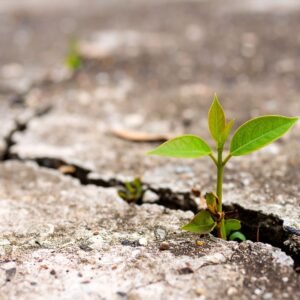
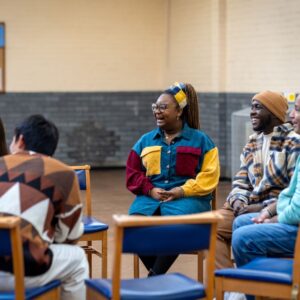
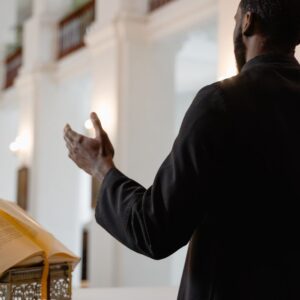


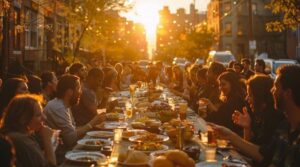
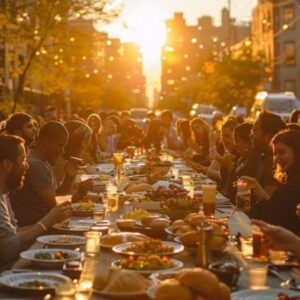

0 Comments